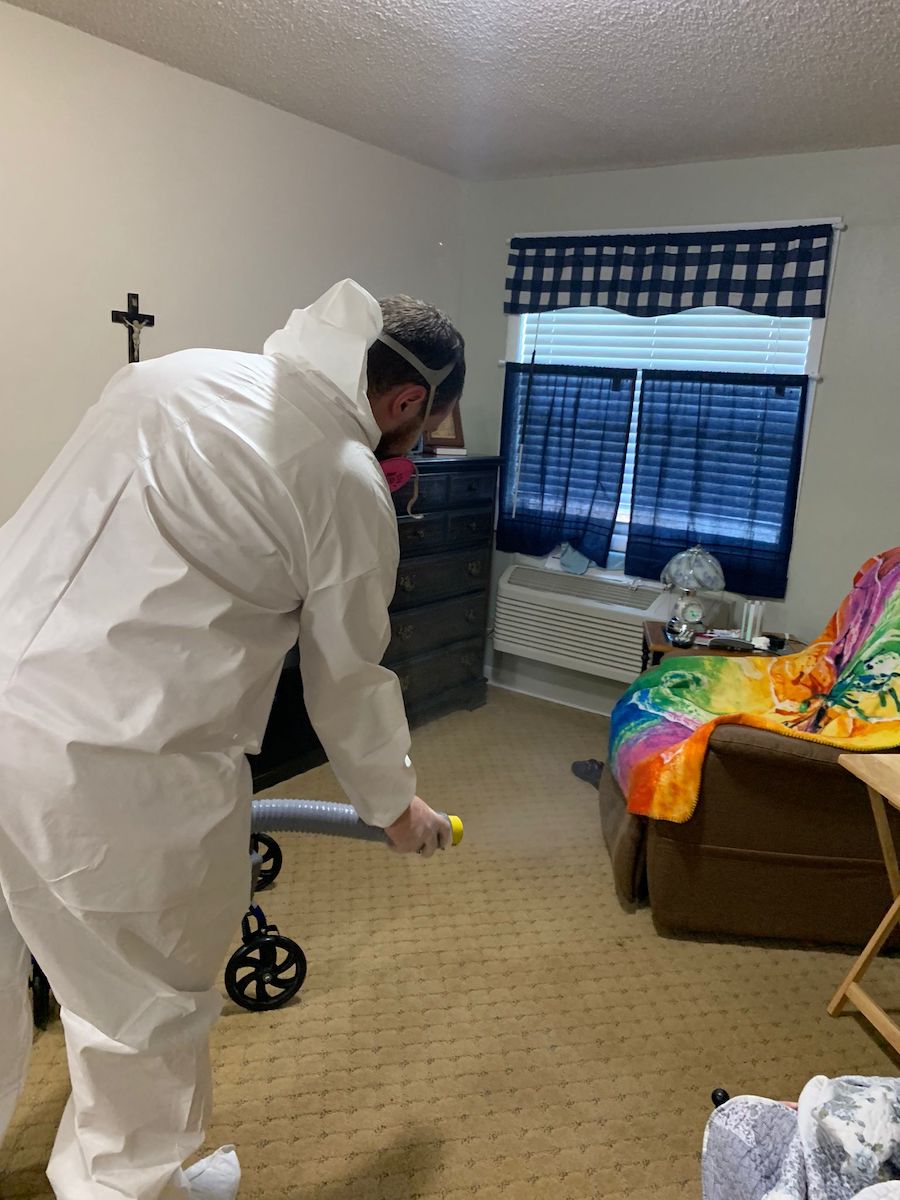When we think of household disasters, sewage backup isn’t usually the first thing that comes to mind. It’s the kind of problem we hope never to encounter, but when it does happen, it brings with it a long list of health risks that often fly under the radar. So, in this post, we’ll dive into nine major sewage backup in basement health risks to keep you informed and your family protected. Let’s begin!
1. Gastrointestinal Issues and Pathogen Exposure
When sewage backs up, it can contaminate the surrounding environment, including water sources and food supplies. When this happens, you may experience stomachaches and be exposed to harmful pathogens due to the major sewage backup. This contamination can lead to an increased risk of diseases and foodborne illnesses, such as salmonella or E. coli infections. Moreover, consuming contaminated food or water can result in severe gastrointestinal issues, including nausea, vomiting, diarrhea, and abdominal pain.
In addition to immediate symptoms like stomachaches, long-term health effects can arise from exposure to harmful pathogens in sewage backups. Some bacteria found in sewage can cause chronic conditions that affect the digestive system over time. This includes conditions like irritable bowel syndrome (IBS) or inflammatory bowel disease (IBD). These conditions can cause ongoing discomfort and may require long-term management.
2. Skin Irritations and Infections
Sewage backup doesn’t just threaten your internal health; it also poses risks to your external well-being. Contact with contaminated water from sewage backup in basement health risks can lead to various skin issues, including irritations and infections. The pathogens and irritants present in sewage can cause rashes, sores, boils, and other skin problems. Even minor cuts or scrapes can become entry points for these harmful microorganisms, leading to localized infections.
In some cases, these skin irritations can be painful and persistent, requiring medical attention and prescription medications to resolve. The discomfort and unsightliness of these skin problems can also take a toll on your overall well-being, adding an additional layer of stress and discomfort to an already challenging situation.
3. Eye and Ear Infections
Your eyes and ears are exceptionally sensitive organs, and exposure to sewage can irritate and infect them. Sewage water is filled with contaminants that can lead to eye and ear infections upon contact. This can result in various symptoms such as discomfort, redness, and itching, in the affected area.
In more severe cases, untreated eye or ear infections can lead to more significant issues, potentially affecting your vision or hearing. Therefore, it’s crucial to seek prompt medical attention if you experience any symptoms of eye or ear infections after exposure to sewage backup in the basement. Protecting your sensory organs is essential not only for your immediate comfort but also for your long-term health.
4. Respiratory Problems and Airborne Contaminants
Sewage backups don’t just bring health risks through direct contact; they can also affect your respiratory system. When sewage overflows, it can release harmful gases and particulate matter into the air. These pollutants can be particularly hazardous to individuals with pre-existing respiratory conditions such as asthma.
Some of the symptoms may include coughing, wheezing, shortness of breath, and chest tightness. For those with asthma, this can lead to severe asthma attacks requiring immediate medical attention. It’s essential to take respiratory symptoms seriously when dealing with sewage backup and, if possible, avoid inhaling contaminated air by using appropriate protective gear. This way, you can minimize the effects of sewage backup in basement health risks.
5. Allergic Reactions
Sewage contains various allergens, and exposure to these allergens can lead to allergic reactions in some individuals. These reactions can manifest as sneezing, coughing, itchy or watery eyes, stuffy or runny nose, and skin rashes. If you have pre-existing allergies or sensitivities, you may be more susceptible to these reactions.
Allergic reactions to sewage can be uncomfortable and distressing, adding to the overall physical and emotional burden of dealing with a sewage backup. It’s essential to be aware of these potential reactions, especially if you or your family members have known allergies, and take appropriate measures to minimize exposure.
6. Viral Infections

One of the most significant sewage backup in basement health risks is viral infections. Viruses like Hepatitis A, Norovirus, and Rotavirus can thrive in sewage-contaminated water. When exposed to such water, you run the risk of contracting viral infections that primarily affect the liver and gastrointestinal system.
Hepatitis A, in particular, can lead to jaundice, fatigue, and severe abdominal discomfort. Norovirus is notorious for causing severe vomiting and diarrhea, leading to dehydration and further complications. Rotavirus can be especially dangerous for young children, causing severe diarrhea and potentially leading to hospitalization.
7. Parasitic Infections
In the murky waters of a sewage backup, parasites like Giardia and Cryptosporidium can lurk. These microscopic organisms can cause parasitic infections when exposed to contaminated water. Symptoms typically include persistent diarrhea, stomach cramps, and nausea.
What makes parasitic infections even more challenging is their resilience. Some parasites, like Giardia and Cryptosporidium, are resistant to many standard treatments, making them difficult to eradicate. Thus, prevention and immediate medical attention are crucial when dealing with sewage-contaminated environments to prevent major sewage backup in basement health risks.
8. Chemical Exposure
Sewage isn’t just a biological hazard; it also contains a cocktail of chemicals and toxins. Heavy metals, pesticides, industrial chemicals, and other harmful substances can be present in sewage. When sewage backup occurs, there’s a risk of prolonged exposure to or ingestion of these chemicals, which can lead to poisoning and long-term health issues.
Heavy metal poisoning, for instance, can result in a range of symptoms, including neurological problems and organ damage. Pesticides and industrial chemicals can disrupt hormonal balance and lead to a variety of health problems. Managing chemical exposure is a crucial aspect of sewage cleanup, emphasizing the importance of using protective gear and following proper sanitation procedures.
9. Mental Health Impact
Dealing with the aftermath of a sewage backup isn’t just physically taxing; it can also take a toll on your mental health. The stress and anxiety associated with property damage, health concerns, and the sheer magnitude of cleanup can lead to mental health challenges. These can include increased stress levels, anxiety, and even depression.
The emotional burden of a sewage backup can be overwhelming, affecting your well-being and ability to cope with the situation effectively. Seeking support from friends, family, or mental health professionals is essential to navigate the mental health impact of a sewage backup successfully.
The Bottom Line
Being aware of these major sewage backup in basement health risks is crucial for taking necessary precautions and seeking professional help when needed. Protecting yourself from exposure to pathogens and ensuring clean drinking water are essential steps towards maintaining good health in such situations.
If you need help with sewage backups in your basement, you can trust PuroClean Zephyrhills to help. We have a team of experts who have handled complex sewage backup issues for many years. So, you can rest assured that your property is in good hands. Contact us today!




 PuroClean Certified Restoration Specialists
PuroClean Certified Restoration Specialists